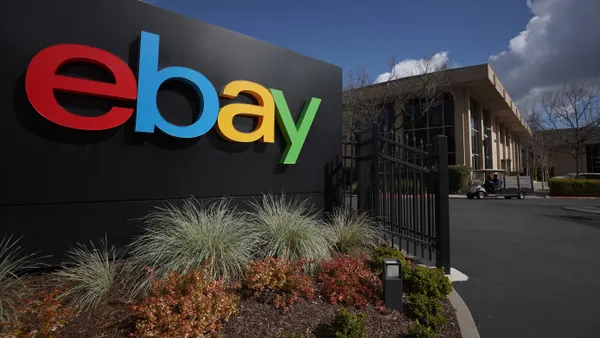Dive Brief:
-
Adobe has agreed to acquire commerce platform vendor Magento Commerce for almost $1.7 billion in a deal aimed at creating a comprehensive e-commerce platform integrating B2C and B2B customer experiences, according to an Adobe press release and numerous published reports.
-
The deal, expected to close later this year, will combine the Adobe Experience Cloud platform, which supports B2B and B2C customers with analytics, marketing and advertising capabilities, with the Magento Commerce Platform, which supports digital commerce, order management and predictive intelligence capabilities.
-
The acquisition comes almost two years after Adobe and Magento first partnered to give Magento customers greater access to Adobe's analytics-driven personalization, messaging and content capabilities.
Dive Insight:
This acquisition is a nod to the notion that shopping is about experience, and that consumers should be able to shop within the context of experiences they are having online, on mobile and elsewhere, rather than having to separately initiate a shopping journey at another time and place. In this case, Magento is bringing the storefronts and Adobe is brining the digital capabilities that can continue to shape and enrich what shoppers get out of those storefronts.
To that extent, Adobe has a lot of technologies that can be used to provide richer shopping experiences for Magento's retail and brand customers. For example, Adobe's Sensei artificial intelligence program may be something of a dark horse in the evolution of AI for retail purposes — not as well known in retail circles as what companies like Amazon, Google, IBM, Microsoft and Salesforce have been up to with AI — but could help deliver a more personalized, intelligent e-store experience.
Adobe may have been similarly overlooked in retail up to this point. The company has cloud-based analytics and software capabilities retailers have used for some time, but seems to have made a more concerted effort within the last year and a half to become a major technology partner to retailers as they seek to redefine the shopping experience. Key partnerships with the likes of Amazon and Microsoft last year put the retail sector on notice, and now the Magento acquisition looks like a follow through on Adobe's ambitions to challenge Salesforce, Oracle and other cloud-based commerce platform companies for retailer attentions.
For Magento's part, it becomes part of an end-to-end platform that should help its competitive case against rivals like Shopify. It could also bring Adobe in contact with hundreds of retailers and brands across all segments that the larger company may not have had ties to before. Ultimately, as Adobe goes toe-to-toe with the likes of Salesforce, the Magento Commerce Platform could become for Adobe what the Demandware platform became for Salesforce in 2016.
Several months ago, Forrester Research noted that Oracle had moved ahead of Adobe in the market for digital experience platforms, largely because Adobe lacked its own commerce platform, and relied on third-party partners for that capability. That's one shortcoming Adobe may have fixed.












